Dexter Netflix TV Series | Season One Recap
Season 1 of Dexter introduces viewers to Dexter Morgan, a forensic blood spatter analyst for the Miami Metro Police Department by day and a serial killer by night. Dexter (Michael C. Hall) lives by a strict moral code instilled in him by his adoptive father, Harry Morgan, targeting only criminals who have escaped justice. Throughout the season, Dexter navigates his dual life, exploring his complex nature while facing a mysterious adversary, the Ice Truck Killer.
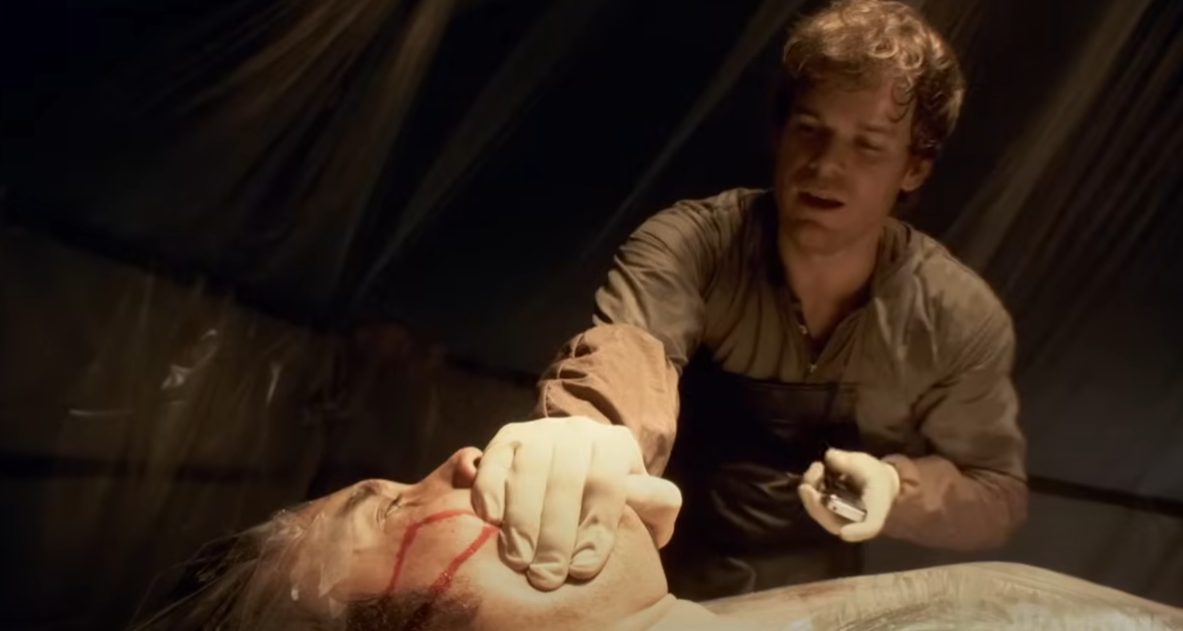
- Dexter’s Dual Life: By day, Dexter works as a skilled forensic expert, respected and liked by his colleagues. At night, he satisfies his compulsion to kill by hunting down criminals who have slipped through the cracks of the justice system. He refers to his need to kill as his “Dark Passenger.”
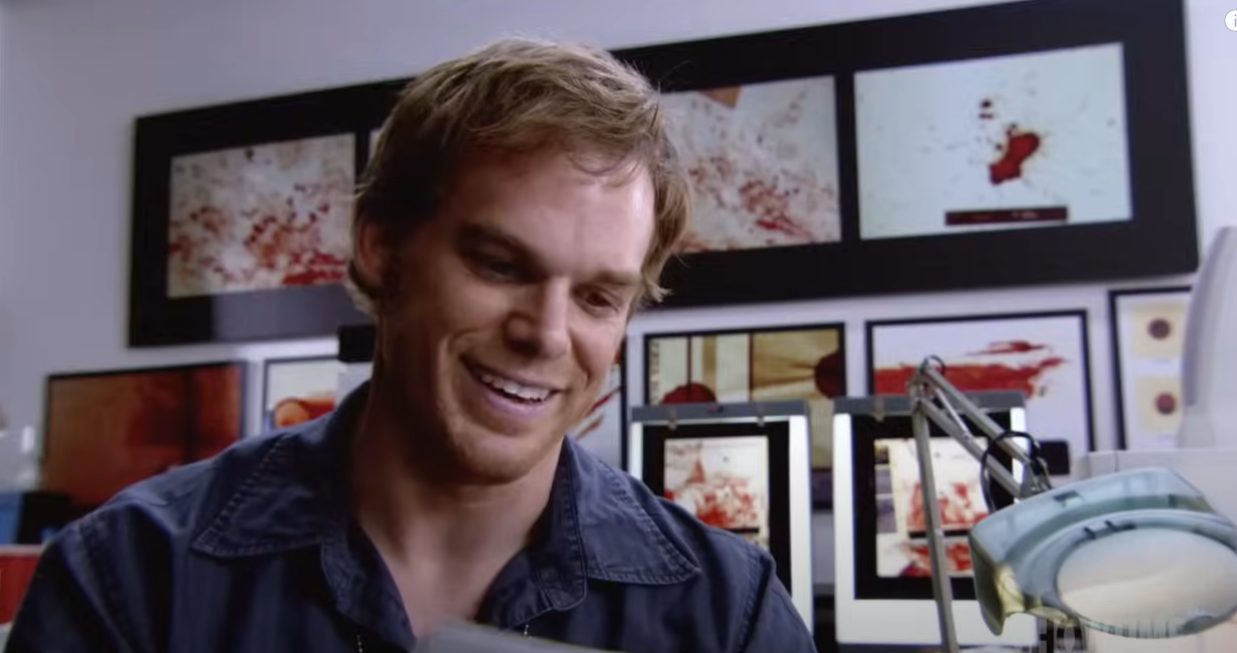
- Harry’s Code: Dexter was adopted by Harry Morgan, a Miami police officer, who recognized Dexter’s violent tendencies at a young age. To protect him and channel his urges, Harry taught Dexter a code: only kill those who deserve it and never get caught. This “Code of Harry” shapes Dexter’s entire worldview and guides his actions.
- Rita Bennett: Dexter is in a relationship with Rita Bennett (Julie Benz), a woman recovering from an abusive marriage. Dexter’s relationship with Rita is part of his facade of normalcy, as he believes she is too emotionally damaged to notice his true nature. However, as the season progresses, Dexter starts to care about her and her two children.

2. The Ice Truck Killer:
- The Ice Truck Killer’s Murders: A series of gruesome murders begins to unfold in Miami, all linked to a serial killer known as the Ice Truck Killer. This killer displays bodies in elaborate, bloodless poses, drawing Dexter’s professional and personal attention. The killer leaves clues seemingly designed specifically for Dexter, taunting him and inviting him into a dangerous game.
- A Personal Connection: The Ice Truck Killer’s familiarity with Dexter’s methods and his penchant for artistic crime scenes intrigue Dexter, who feels a kinship with the killer. Over time, it becomes clear that the Ice Truck Killer knows about Dexter’s secret life and is trying to communicate with him through his murders.
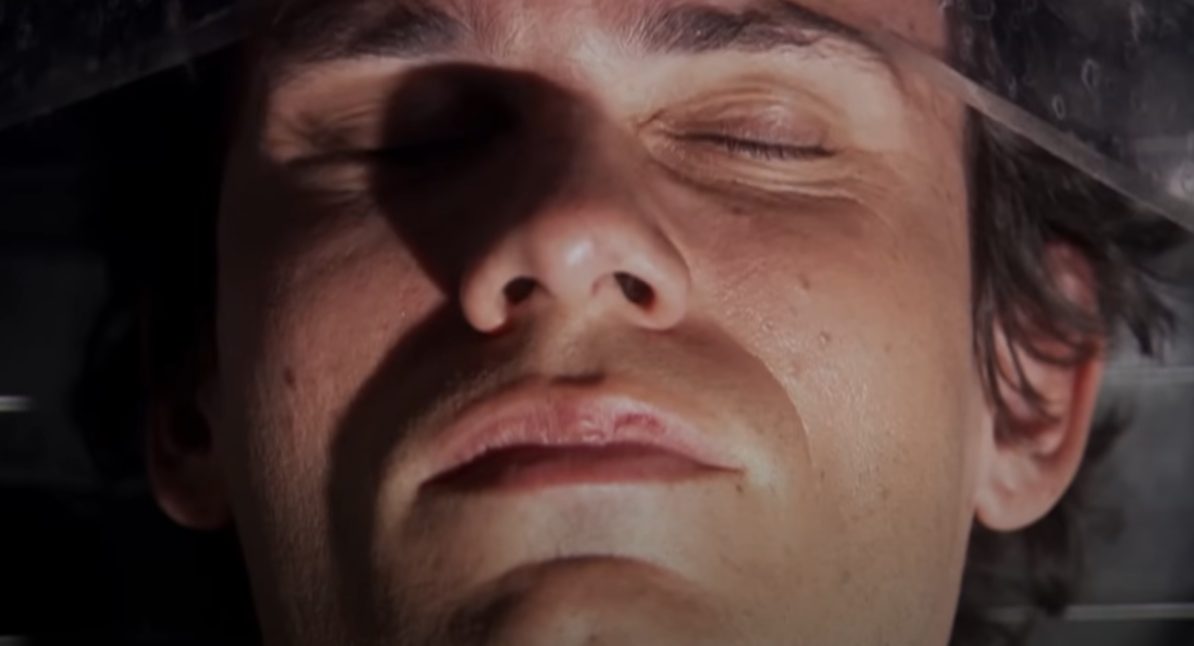
3. Dexter’s Backstory:
- Flashbacks to Dexter’s Childhood: Throughout the season, viewers see flashbacks to Dexter’s childhood and his relationship with Harry. These flashbacks reveal that Dexter’s violent tendencies began at a young age, and Harry’s discovery of Dexter killing animals led to the creation of “The Code.”
- The Origin of Dexter’s Dark Passenger: As the season unfolds, Dexter starts to remember details about his traumatic past. He recalls being found in a pool of blood as a young child after witnessing the brutal murder of his mother. This event is hinted at as the origin of Dexter’s homicidal urges, which Harry tried to control.
4. Debra Morgan’s Investigation:
- Debra’s Ambitions: Dexter’s adoptive sister, Debra Morgan (Jennifer Carpenter), is a detective in the Miami Metro Police Department, striving to prove herself in a male-dominated field. She is fiercely loyal to Dexter, though unaware of his dark side.
- The Ice Truck Killer Case: Debra becomes heavily involved in the Ice Truck Killer investigation, working alongside her colleagues at Miami Metro, including detectives Angel Batista (David Zayas) and James Doakes (Erik King). Throughout the investigation, Debra grows closer to a new romantic interest, Rudy Cooper (Christian Camargo), who plays a significant role later in the season.
5. Dexter’s Pursuit of Justice:
- Dexter’s Kills: Throughout the season, Dexter continues to follow Harry’s code, hunting down and killing other criminals who have escaped the law. These kills give viewers insight into Dexter’s meticulous process and inner struggle. While he derives satisfaction from fulfilling his dark urges, he often reflects on his lack of human emotion and how different he is from those around him.
- James Doakes’ Suspicion: One of Dexter’s colleagues, Sergeant James Doakes, becomes suspicious of Dexter’s behavior. Unlike others, Doakes sees something unsettling in Dexter’s calm, emotionless demeanor, and he begins to investigate Dexter on his own. This tension between Doakes and Dexter becomes a recurring theme throughout the series.
6. The Ice Truck Killer’s Identity Revealed:
- Rudy Cooper’s True Identity: As the Ice Truck Killer continues his killing spree, it is revealed that Rudy Cooper, Debra’s new boyfriend, is the Ice Truck Killer. Rudy has been manipulating Debra to get closer to Dexter, knowing their sibling relationship.
- Rudy Is Dexter’s Brother: In the season’s shocking twist, Dexter learns that Rudy is actually Brian Moser, his biological brother. Brian was present when their mother was murdered, and like Dexter, he was deeply affected by the trauma. However, Brian did not have a Harry to guide him, and he grew into a cold-blooded killer.
- Brian’s Proposal: Brian tries to convince Dexter to embrace his true nature and live as he does, free from the moral constraints of Harry’s code. He urges Dexter to kill Debra to sever his ties to his adopted family, allowing them to start a new life together as brothers. Dexter, however, is torn between his loyalty to Debra and the bond he feels with Brian.
7. The Final Confrontation:
- Dexter Chooses the Code: In the season finale, Dexter is forced to choose between his brother and the life Harry set up for him. In a climactic confrontation, Dexter kills Brian to protect Debra, reaffirming his commitment to Harry’s code, despite feeling a deep connection to his brother. This decision solidifies Dexter’s internal conflict: he is both a killer and someone who desires to follow the principles instilled in him by Harry.
Key Themes:
- Duality and Identity: Season 1 focuses on Dexter’s internal struggle to reconcile his need to kill with his desire to appear normal. The introduction of the Ice Truck Killer, who embraces his psychopathy, forces Dexter to question his own identity and his relationship with the code Harry taught him.
- Family and Loyalty: Dexter’s relationship with Debra, his adoptive sister, is central to the season. While Dexter claims to lack normal human emotions, his protective instincts toward Debra hint at a deeper emotional capacity. This relationship is tested when Dexter’s biological brother re-enters his life, forcing him to choose between his past and his present.
- Masks and Facades: Dexter constantly wears a mask to blend into society, faking emotions and normalcy to avoid detection. His ability to deceive those closest to him, including Rita and Debra, is a central theme of the series, highlighting the disconnect between his inner world and his outward persona.
Dexter TV Series: Season 2 Recap & Review
Season 2 of Dexter delves deeper into the complexities of Dexter Morgan’s life as a blood splatter analyst by day and a serial killer by night. This season, we see Dexter facing a growing sense of self-awareness about his dark urges while simultaneously dealing with external pressures that threaten to expose him.
The Bay Harbor Butcher Investigation
At the center of Season 2 is the discovery of Dexter’s underwater dumping ground. The Miami Metro Police Department finds several bodies off the coast of Miami, and the FBI is brought in to investigate. Dubbed the “Bay Harbor Butcher,” the hunt for this serial killer becomes the primary focus of the season. Unbeknownst to everyone, Dexter is the very killer they’re looking for. This creates intense pressure on Dexter to cover his tracks while continuing his double life.
Dexter’s Struggle with Identity
Throughout the season, Dexter grapples with the consequences of his actions and begins to question his identity. He begins attending Narcotics Anonymous (NA) meetings, initially as a cover to explain his erratic behavior, but he unexpectedly starts to reflect on his dark compulsions and whether or not he can control them. His sponsor, Lila, becomes a key figure in this introspection, pushing him toward self-discovery but also creating more danger.
Lila: A New Obsession
Lila Tournay, played by Jaime Murray, enters Dexter’s life as his NA sponsor and quickly becomes an obsessive, manipulative figure. She understands Dexter’s need for release and encourages him to embrace his darker side. However, as their relationship intensifies, Lila becomes a danger to Dexter’s carefully constructed world. Her erratic behavior and obsession with Dexter threaten his relationship with his girlfriend, Rita Bennett.
Doakes’ Suspicion
Sergeant James Doakes has been suspicious of Dexter since Season 1. In Season 2, his suspicions grow even stronger. Doakes starts investigating Dexter’s movements and uncovers disturbing truths about him. His pursuit of Dexter drives a lot of the tension in the season. By the season’s end, Doakes is framed as the Bay Harbor Butcher after Dexter captures him. This results in Doakes being trapped and ultimately killed by Lila, who sets fire to his cabin, sealing Dexter’s secret once again.
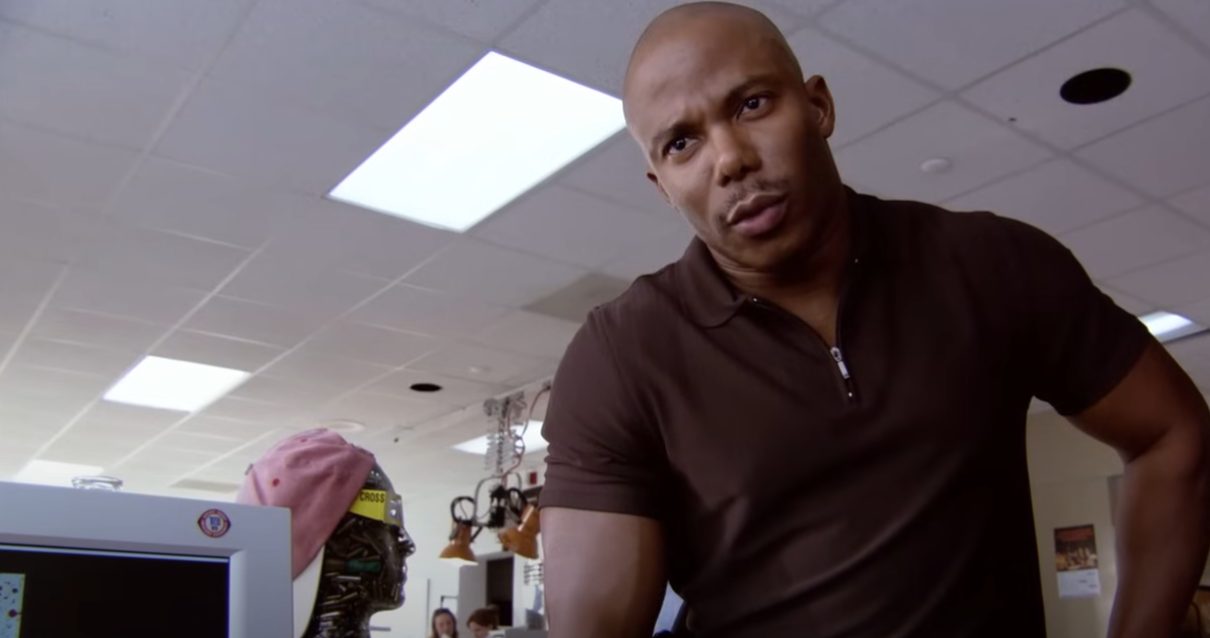
Dexter and Rita’s Relationship
Dexter’s relationship with Rita is put to the test this season. After discovering Dexter’s attendance at NA meetings, Rita suspects he’s hiding an addiction. However, as the truth about his supposed drug problem unfolds, their relationship grows more strained, especially when Lila enters the picture. Rita’s suspicions about Dexter’s loyalty and character make it harder for Dexter to maintain his facade of normalcy.
Key Characters
- Dexter Morgan (Michael C. Hall): The protagonist continues to balance his two lives while struggling with new emotions about his identity.
- Rita Bennett (Julie Benz): Dexter’s girlfriend, who grows more suspicious of his erratic behavior.
- James Doakes (Erik King): A Miami Metro officer who becomes dangerously close to uncovering Dexter’s true nature.
- Lila Tournay (Jaime Murray): Dexter’s obsessive sponsor, who encourages his darker impulses but eventually becomes too dangerous.
- Debra Morgan (Jennifer Carpenter): Dexter’s sister, who is recovering from the traumatic events of Season 1 and trying to move on with her career.
Themes
- Identity and Self-Acceptance
Dexter’s internal struggle to accept or deny his identity as a killer drives much of the season. His time in NA and his interactions with Lila challenge him to confront whether his “Dark Passenger” is something he can control or a part of him that he should embrace. - Morality vs. Survival
The moral gray areas that Dexter operates in are a constant focus. As the Bay Harbor Butcher investigation closes in on him, Dexter must wrestle with the idea of framing Doakes, a relatively innocent man, to save himself. - Manipulation and Control
Lila’s character embodies the theme of manipulation, both of Dexter and those around her. Her influence over Dexter demonstrates how vulnerable he is to those who seem to understand his darkest urges. But she also becomes a figure Dexter must control to protect his secret. - Dual Lives
The tension of living a double life becomes more pronounced, as Dexter’s actions as a vigilante serial killer are in direct conflict with his job in law enforcement and his personal relationships.
Climax and Conclusion
The season reaches a thrilling climax when Dexter captures Doakes after discovering that he knows the truth. In an intense twist, Lila, who feels abandoned by Dexter, kills Doakes by setting fire to the cabin where he is imprisoned, believing this act will bring her closer to Dexter. However, this only drives Dexter to eliminate Lila. In the end, Dexter kills Lila in Paris, closing the chapter on her manipulation and obsession. The Bay Harbor Butcher case is closed with Doakes posthumously taking the blame, allowing Dexter to continue his life without suspicion.
Final Thoughts
Season 2 of Dexter heightens the tension from Season 1 by focusing on Dexter’s moral and emotional dilemmas while ramping up the external threats to his secret life. The introduction of Lila adds new layers of complexity to Dexter’s psyche, while the pursuit of the Bay Harbor Butcher forces Dexter into increasingly desperate and dangerous situations.
Season 2 is a pivotal moment in the series, where Dexter’s dark tendencies are placed under a microscope, and his capacity for self-preservation is tested to its limits.
Dexter TV Series: Season 3 Recap & Review
Season 3 of Dexter introduces new moral dilemmas for Dexter Morgan as he navigates the complexities of relationships, loyalty, and the responsibilities of fatherhood. Unlike the previous seasons, this one introduces a deeper exploration of Dexter’s desire to connect with others while maintaining his dark secret.
The Friendship with Miguel Prado
Season 3’s primary storyline revolves around Dexter’s friendship with Assistant District Attorney Miguel Prado, played by Jimmy Smits. The season begins with Dexter unintentionally killing Miguel’s younger brother, Oscar Prado, during a confrontation. To Dexter’s surprise, instead of seeking vengeance, Miguel becomes fascinated by Dexter’s vigilante justice, and a friendship develops between them.Over time, Miguel learns about Dexter’s true nature as a killer and, instead of turning him in, wants to join him. This friendship marks the first time Dexter allows someone into his private world, but it also brings challenges as Miguel becomes increasingly uncontrollable and dangerous.
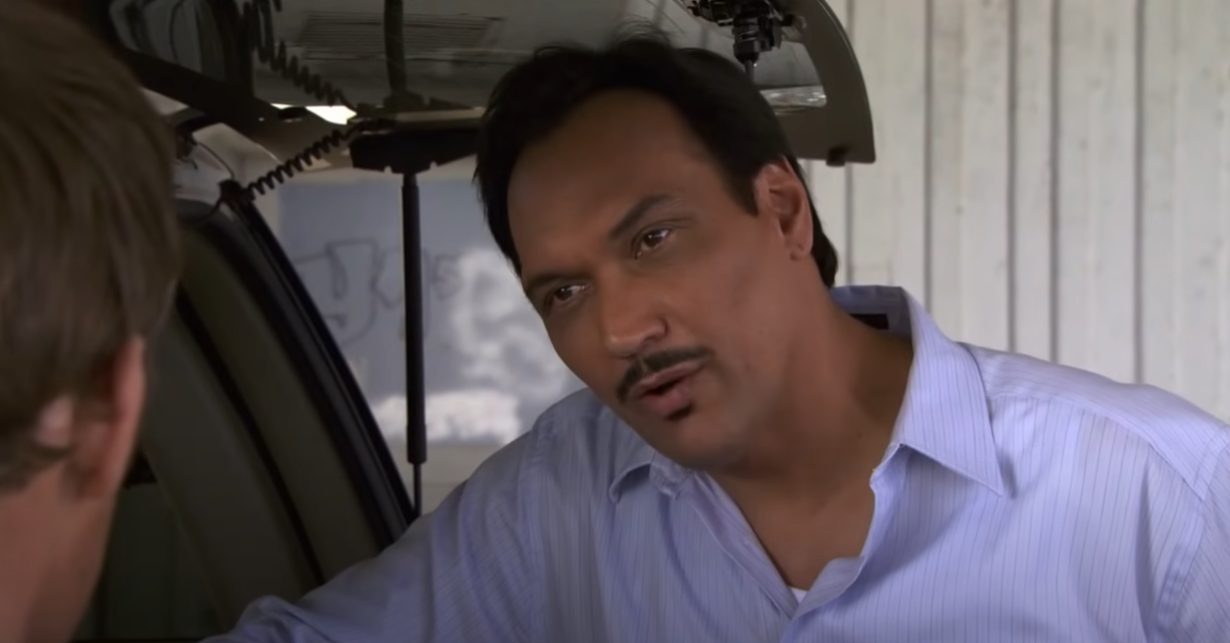
The Skinner Investigation
The secondary storyline involves a new serial killer in Miami, dubbed “The Skinner,” who kidnaps, tortures, and kills his victims by skinning them alive. The Skinner becomes a looming threat throughout the season, adding tension to the police investigation.
Dexter’s Growing Family
Dexter’s relationship with Rita Bennett takes a significant turn in Season 3, as Rita becomes pregnant. This development forces Dexter to confront his feelings about fatherhood and what it means for his future. He agrees to marry Rita, despite his doubts about being able to balance family life with his homicidal tendencies. This arc explores Dexter’s internal struggle about living a normal life while still adhering to his “Dark Passenger.”
Miguel Prado’s Downfall
As Miguel becomes more involved in Dexter’s world, he starts to push the boundaries of Dexter’s “code.” Initially, Dexter teaches him to kill according to Harry’s Code—only killing those who have escaped justice. However, Miguel’s increasing desire for power and control leads him to murder people based on personal vendettas, such as attorney Ellen Wolf, who he believes to be morally corrupt.Dexter soon realizes that Miguel is unstable and untrustworthy. As Miguel spirals out of control, Dexter is forced to deal with him as he would any other dangerous adversary. Their friendship turns into a deadly confrontation, and Dexter ultimately kills Miguel to prevent him from exposing his secret.
Debra’s Career Advancement
Dexter’s sister, Debra Morgan, is focused on advancing her career within Miami Metro. This season, she works alongside Special Agent Anton Briggs, a confidential informant who later becomes her romantic interest. Her story arc explores her struggle for professional recognition and her desire to be seen as a serious detective, separate from her family’s dark secrets.
Key Characters
- Dexter Morgan (Michael C. Hall): Dexter continues to juggle his life as a serial killer and a family man, but this season he explores the complexities of friendship and trust.
- Miguel Prado (Jimmy Smits): A prominent ADA who becomes Dexter’s first true “friend” but spirals into dangerous territory as he embraces killing without following Dexter’s moral code.
- Rita Bennett (Julie Benz): Dexter’s girlfriend, later fiancée, who becomes pregnant, pushing Dexter to think more deeply about his future as a father and husband.
- Debra Morgan (Jennifer Carpenter): Dexter’s sister, who is moving forward in her career but remains unaware of her brother’s dark life.
- The Skinner (Jesse Borrego): A serial killer whose presence looms over the season, adding tension to the police investigations.
Themes
Friendship and Trust A significant theme in Season 3 is Dexter’s exploration of friendship and trust. For the first time, he opens up to someone—Miguel Prado—about his murderous impulses. This friendship, however, teaches Dexter that trust is dangerous, as Miguel’s lack of moral boundaries threatens everything Dexter holds dear.
Control and Power The struggle for control and power is central to the dynamic between Dexter and Miguel. Initially, Dexter holds the power, teaching Miguel his code, but Miguel’s ego and need for dominance flip this balance. Ultimately, Dexter has to regain control by taking Miguel’s life.
Fatherhood and Legacy With the impending birth of his child, Dexter is forced to confront his future as a father. He wrestles with how his dark tendencies will impact his child and whether he can provide a normal, stable life for his family. This arc reflects Dexter’s growing concern over his legacy and the possible transmission of his darker traits.
The Code Dexter’s moral code, passed down from his father Harry, is tested more than ever in this season. Miguel’s disregard for the rules forces Dexter to reflect on why the code is important and what happens when someone kills without conscience or control.
Justice and Revenge Miguel Prado’s desire to kill stems not from a sense of justice but from personal revenge and power. His character serves as a mirror to Dexter, showing what happens when the line between justice and revenge is blurred.
Climax and Conclusion
The season builds toward a tense final confrontation between Dexter and Miguel. After Miguel kills Ellen Wolf, a defense attorney who had crossed him, Dexter realizes that Miguel has become a loose cannon. Dexter ultimately lures Miguel into a trap and kills him, staging it to look like a murder by The Skinner to avoid suspicion.
In the final episodes, Dexter faces The Skinner, who has been closing in on Dexter and his associates. After a violent encounter, Dexter manages to kill The Skinner, once again ensuring his secret life remains hidden.
The season concludes with Dexter and Rita’s wedding. While Dexter reflects on his journey and his new role as a husband and father, he acknowledges that his “Dark Passenger” will always be a part of him, but for now, he believes he can manage it while living a semblance of a normal life.
Final Thoughts
Season 3 of Dexter shifts the focus from external threats to Dexter’s internal struggles with relationships, trust, and the complexities of maintaining his code. The introduction of Miguel Prado adds a new layer of tension, as Dexter’s first true friendship ultimately ends in betrayal and violence. The season also explores Dexter’s thoughts about his legacy as he faces fatherhood, hinting at more personal dilemmas to come.
While not as intense as previous seasons in terms of action, Season 3 is a deep psychological exploration of Dexter’s character, highlighting the risks of forming connections and the dangers of letting someone too close.
Dexter TV Series Season 4 | Recap & Review
Season 4 of Dexter is widely regarded as one of the best and most intense seasons of the series. It introduces the show’s most dangerous adversary to date, the infamous “Trinity Killer,” played masterfully by John Lithgow. This season focuses on Dexter’s evolving life as a husband and father while struggling to maintain his double life as a serial killer. The stakes are higher than ever, leading to a shocking and tragic conclusion that leaves a lasting impact on the show’s trajectory.
The Trinity Killer
The central storyline revolves around Arthur Mitchell, aka the “Trinity Killer.” Arthur is a seemingly ordinary family man who has been secretly killing for over 30 years in a cyclical pattern of three killings at a time. His victims are chosen to represent different stages of his traumatic childhood. The Trinity Killer is the most prolific and elusive serial killer Dexter has encountered, and Dexter is both fascinated and horrified by him.Over the course of the season, Dexter embeds himself in Arthur’s life, posing as a potential disciple under the alias “Kyle Butler.” Dexter hopes to learn how Arthur manages to balance his murderous urges with family life. However, as Dexter learns more about Arthur, he discovers the deep, horrifying cracks beneath Arthur’s facade and how much damage he has done to those closest to him.

Dexter’s Struggle with Fatherhood
Dexter’s personal life takes a major turn this season with the birth of his son, Harrison. As a new father, Dexter is constantly trying to balance his responsibilities at home with his need to satisfy his “Dark Passenger.” He is now living in the suburbs with Rita, Astor, Cody, and baby Harrison, and the pressures of family life begin to weigh heavily on him. This leads to sleep deprivation, frustration, and challenges in maintaining his dual life. Dexter is increasingly worried about whether he can be a good father while hiding his true self from his family.
Debra’s Investigation
Dexter’s sister, Debra, continues to grow as a detective, investigating the mysterious deaths surrounding Arthur Mitchell. Unbeknownst to her, she is chasing the same killer that Dexter is tracking. Debra’s personal life also faces challenges as she delves deeper into her father Harry’s past, discovering that he had an affair with Dexter’s biological mother, Laura Moser. This revelation shocks Debra and adds emotional complexity to her relationship with Dexter.
Agent Lundy Return
Special Agent Frank Lundy, a retired FBI agent and Debra’s former lover, returns to Miami to hunt down the elusive Trinity Killer. His return rekindles his romance with Debra, much to her discomfort as she is in a relationship with Detective Anton Briggs. However, tragedy strikes when Lundy is shot and killed in a parking lot. Debra is injured in the same attack, which drives her determination to find Trinity and avenge Lundy’s death.

Dexter’s Pursuit of Arthur Mitchell
Dexter’s pursuit of Arthur Mitchell intensifies as he learns more about the killer’s life. Dexter is initially intrigued by Arthur’s ability to maintain the appearance of a perfect life while hiding his dark side, something Dexter aspires to. However, he soon realizes that Arthur is an abusive father and husband, and his “perfect” life is a lie. Arthur’s wife, Sally, and his children, Jonah and Rebecca, live in fear of him. Dexter eventually sees that Arthur is a monster in every sense of the word.As Dexter’s relationship with Arthur becomes more dangerous, the stakes rise. Arthur becomes suspicious of Dexter’s true identity, leading to a cat-and-mouse game between the two killers. Dexter ultimately decides that Arthur must be stopped for the sake of his family and his own safety.
Key Characters
- Dexter Morgan (Michael C. Hall): Dexter continues to balance his life as a serial killer with his growing responsibilities as a father and husband. His encounter with the Trinity Killer forces him to confront what kind of man and father he wants to be.
- Arthur Mitchell / Trinity Killer (John Lithgow): Arthur is a complex, terrifying villain. He appears to be a mild-mannered family man but is revealed to be a monstrous killer with a horrific cycle of murder that has lasted for decades.
- Rita Morgan (Julie Benz): Dexter’s wife and the mother of their newborn son, Harrison. She represents Dexter’s hope for a normal life, but her growing suspicions about Dexter’s erratic behavior add tension to their relationship.
- Debra Morgan (Jennifer Carpenter): Dexter’s sister is focused on her career and her hunt for the Trinity Killer while dealing with personal revelations about her father’s past.
- Frank Lundy (Keith Carradine): The retired FBI agent who returns to Miami to track down the Trinity Killer. His death becomes a key motivator for Debra’s pursuit of the case.
Themes
- Fatherhood and Legacy One of the most prominent themes of Season 4 is fatherhood. Both Dexter and Arthur Mitchell are fathers, but they embody opposite ends of the spectrum. Dexter is constantly worried about how his dark tendencies will affect his children, while Arthur’s relationship with his children is abusive and toxic. This contrast forces Dexter to reflect on his own father, Harry, and the legacy he is leaving behind for Harrison.
- Dual Lives and Deception The idea of living a double life is further explored this season. Both Dexter and Arthur maintain seemingly normal lives while harboring deadly secrets. Their interactions show Dexter what could happen if he fails to keep his urges in check. The deception they live with strains their relationships and leads to disastrous consequences.
- Control and Chaos Dexter’s obsession with control is challenged more than ever in Season 4. His carefully constructed life begins to unravel as the demands of fatherhood, his job, and his pursuit of Trinity conflict. The season showcases how both Dexter and Arthur’s need for control inevitably leads to chaos.
- The Nature of Evil Arthur Mitchell represents a new level of evil in Dexter’s world. While Dexter sees himself as a killer who only targets those who deserve it, Arthur is an indiscriminate murderer whose actions are driven by deep psychological trauma. This forces Dexter to question his own nature and his moral justification for killing.
Climax and Conclusion
The season builds to a thrilling and devastating finale. Dexter finally tracks down Arthur Mitchell and kills him in a gruesome confrontation. However, when Dexter returns home, he is met with a horrifying discovery—Rita has been murdered by Arthur, her body left in a bathtub, mirroring one of Trinity’s killing methods. Dexter finds his infant son, Harrison, crying in a pool of blood, just as Dexter was found as a child after his mother’s death.
The final scene is a shocking and emotional moment for both Dexter and the audience, as Dexter’s dream of maintaining a normal family life is shattered. The tragedy forces Dexter to confront the consequences of his double life, and he is left alone with the knowledge that his actions led to Rita’s death.
Final Thoughts
Season 4 of Dexter is considered one of the show’s best due to its intense psychological depth, the introduction of the terrifying Trinity Killer, and its shocking and tragic conclusion. Arthur Mitchell is a chilling villain whose presence looms over the entire season, and his dynamic with Dexter pushes the show into new, darker territory.
The season’s exploration of fatherhood, legacy, and the dangers of leading a double life creates a narrative filled with tension and moral complexity. The heartbreaking loss of Rita is a turning point for the series, dramatically altering Dexter’s trajectory and setting the stage for the darker, more conflicted character he becomes in future seasons.
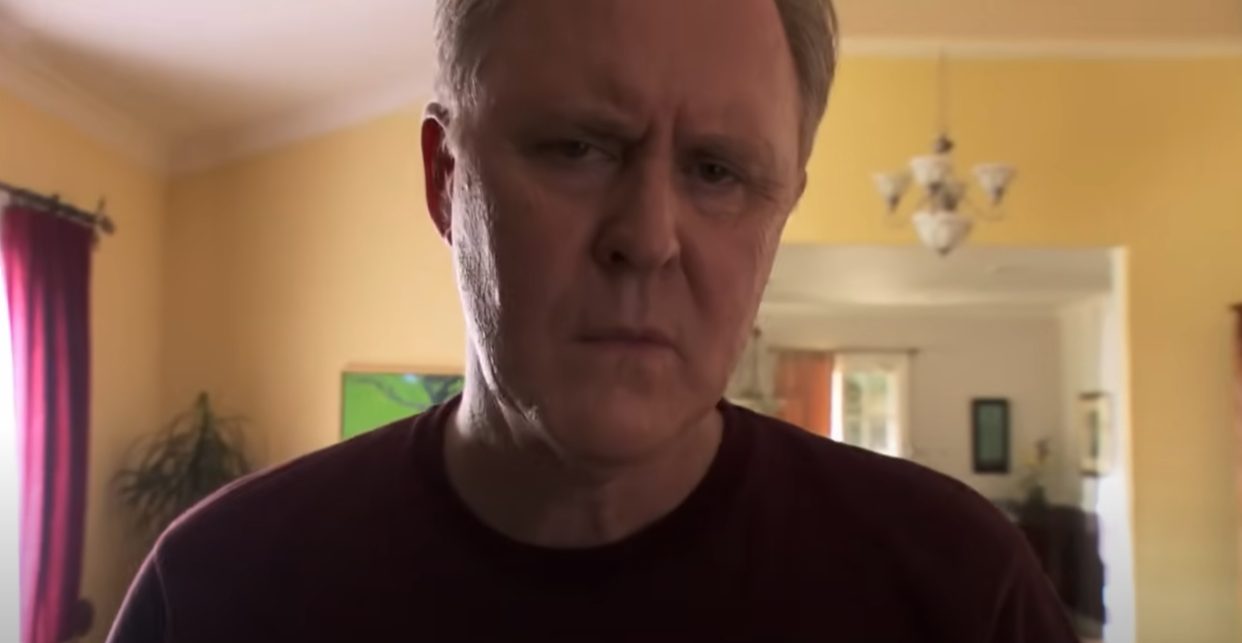
Season 4 leaves viewers with a haunting message about the cost of living a life built on lies, and it serves as a critical moment in Dexter’s evolution as both a character and a killer.
Season 5 Recap
Season 5 of Dexter follows the aftermath of one of the series’ most shocking moments—the murder of Dexter’s wife, Rita, by the Trinity Killer in the Season 4 finale. Overwhelmed by grief, guilt, and the challenges of being a single father, Dexter Morgan embarks on a new chapter that explores his complex relationship with his “Dark Passenger” and his need for redemption. Throughout the season, Dexter forges a unique bond with a new character, Lumen Pierce, which drives the narrative of revenge, healing, and the blurred lines between justice and murder.
Season 5 is defined by themes of redemption, forgiveness, and self-acceptance. While Dexter continues to wrestle with his Dark Passenger, his relationship with Lumen allows him to explore the possibility of using his darkness for good, helping someone reclaim their life. Ultimately, Lumen’s departure is a bittersweet moment for Dexter—it reinforces his loneliness but also gives him a glimpse of what a different life might look like.
The Aftermath of Rita’s Death
The season opens with Dexter reeling from the discovery of Rita’s body in their home’s bathtub. Dexter is overcome with guilt, feeling responsible for Rita’s death due to his delayed action in killing Arthur Mitchell, the Trinity Killer. This loss sends Dexter into an emotional spiral, and for the first time in the series, he seriously questions whether he is capable of balancing his life as a father, a killer, and a vigilante.
The police initially suspect Dexter may have been involved in Rita’s murder, and he is forced to confront his own emotions, which he’s not used to expressing. The tragic death leaves Dexter vulnerable, especially to the prying eyes of his colleagues at Miami Metro Homicide and his sister, Debra, who struggles to help him cope.
Lumen Pierce
Lumen Pierce (played by Julia Stiles) is introduced early in the season as a pivotal character. After initially seeking out a new kill to help him regain control of his emotions, Dexter stumbles upon Lumen, a survivor of a violent gang that kidnaps, tortures, and murders women. Lumen is being held captive by Boyd Fowler, a man Dexter intended to kill for his own crimes. When Dexter frees her, Lumen becomes a critical part of his life, and the two form a surprising and unique partnership.
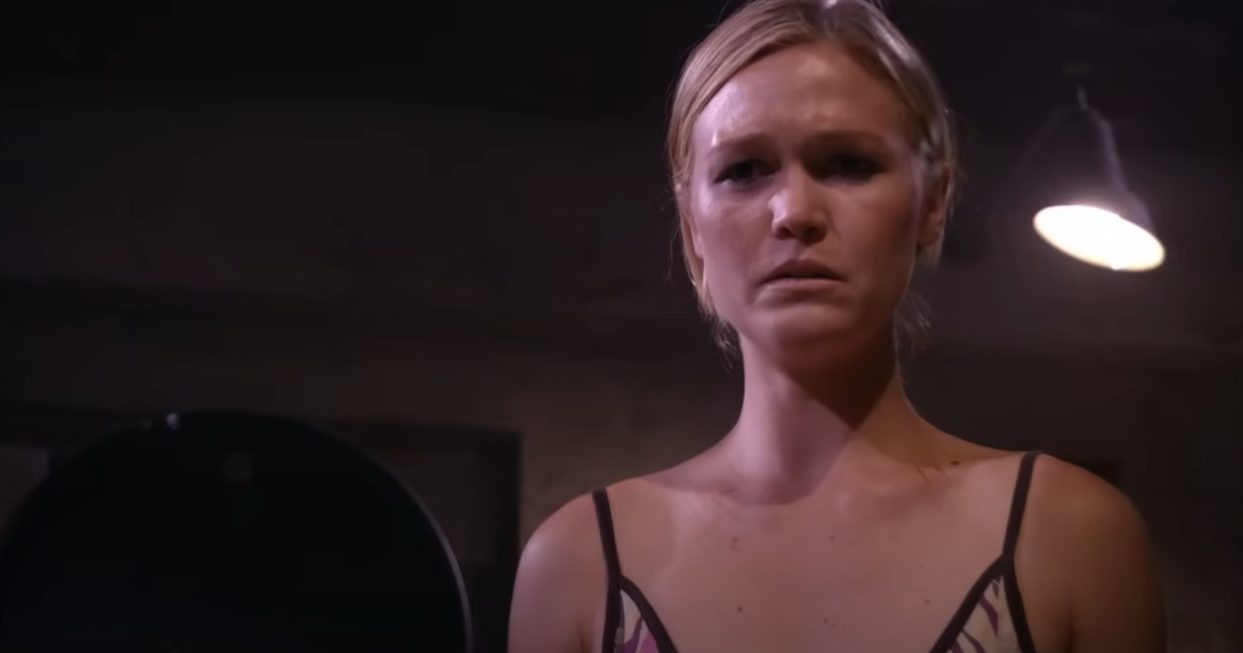
At first, Lumen is traumatized and frightened, but as she reveals more of her backstory, she becomes determined to seek revenge on those who abused her. Dexter, seeing parallels between her situation and his own need for justice, helps her hunt down the men responsible for her suffering. Together, they pursue a shared mission of vengeance, setting the stage for Dexter to explore his capacity for empathy, something he previously thought he lacked.
Dexter’s Struggle with Fatherhood
Throughout Season 5, Dexter struggles to balance his life as a single father to Harrison. He grapples with feelings of inadequacy, believing that his dark urges make him unfit to raise his son. This season highlights the tension between Dexter’s desire to be a good father and the constant pull of his dark compulsions. He relies heavily on his nanny, Sonya, and on Debra’s support, but he often finds himself torn between protecting his son and keeping his secret life hidden.
Dexter’s fatherhood journey is paralleled with his relationship with Lumen. While he helps her reclaim her sense of self by eliminating the men who hurt her, Dexter is also faced with the realization that he cannot protect everyone he cares about—echoing his failure to save Rita.
The Barrel Girls Case
The central case of Season 5, known as the “Barrel Girls” murders, ties into Lumen’s story. The police investigation, led by Debra and her colleagues at Miami Metro Homicide, revolves around a group of wealthy and powerful men who kidnap, rape, and murder women, dumping their bodies in barrels after torturing them. These men are tied to an organization led by a motivational speaker, Jordan Chase, who becomes the season’s primary antagonist.
While Debra closes in on the killers through legal means, Dexter and Lumen operate outside the law, taking matters into their own hands. Dexter’s involvement with Lumen deepens as they systematically hunt down each member of the gang, leaving behind a trail of bodies.
The Evolution of Dexter and Lumen’s Relationship
This relationship marks a pivotal moment for Dexter, as he begins to see himself as more than just a monster. For a brief time, Lumen allows him to explore the possibility of connection and redemption. There’s a growing emotional bond between them, though it’s complicated by the nature of their alliance.
The Finale: Lumen’s Departure
In the season finale, Dexter and Lumen finally confront Jordan Chase, the man responsible for orchestrating the Barrel Girls’ murders. After an intense showdown, they manage to kill him, avenging Lumen’s trauma once and for all.
However, once Jordan is dead, Lumen realizes that her need for vengeance has been fulfilled, and she no longer feels the same darkness that once consumed her. She decides to leave Dexter, explaining that while she understands and appreciates him, her journey has come to an end. Dexter, who for the first time allowed himself to believe in the possibility of love and partnership, is left heartbroken by her departure.

Debra’s Near Discovery
One of the season’s tensest moments comes when Debra, unknowingly on the trail of Dexter and Lumen, comes close to discovering their vigilante operation. In a pivotal scene, Debra finds Dexter and Lumen in the middle of disposing of Chase’s body. She cannot see them clearly and, rather than intervene, she decides to let the vigilantes go, expressing sympathy for the unknown killer(s). This moment showcases Debra’s own evolving views on justice and foreshadows the dramatic revelations in later seasons.
Dexter Season 6 Recap: Faith, Darkness, and the Doomsday Killer
Season 6 of Dexter delves into themes of faith, redemption, and the ever-present conflict between Dexter’s dark urges and his longing for normalcy. This season presents one of Dexter’s most unsettling adversaries, the Doomsday Killer, whose crimes are rooted in apocalyptic religious fanaticism. Along the way, Dexter confronts his own views on spirituality and morality, grapples with the pressures of fatherhood, and faces challenges to his vigilante lifestyle.
The overarching theme of Season 6 revolves around faith, both in a religious sense and in Dexter’s personal journey. From the start, Dexter begins to question where he fits in the grand scheme of things, especially as he becomes more aware of Harrison’s future and his own legacy as a father. Several key moments throughout the season involve Dexter pondering questions of morality and spirituality, areas he’s mostly ignored up until now.
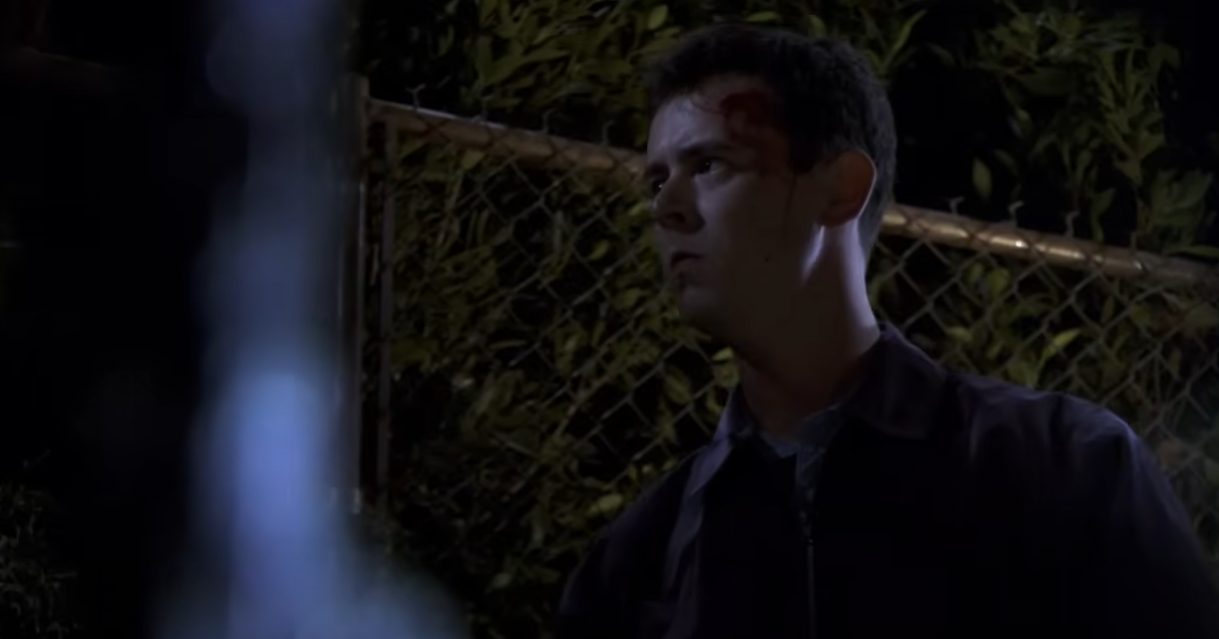
The Doomsday Killer (Travis Marshall and Professor Gellar)
The central villain of Season 6 is the Doomsday Killer, a religious zealot who believes he is fulfilling biblical prophecies about the end of the world. The early part of the season leads the audience to believe that Travis Marshall, a young man played by Colin Hanks, is under the influence of his mentor, Professor James Gellar, a fanatical scholar of apocalyptic literature. Together, they carry out gruesome murders that reflect the Book of Revelation’s prophecies, staging their victims in elaborate, symbolic tableaus.
As the Miami Metro Homicide team investigates these murders, Dexter is drawn into the chase, becoming increasingly fascinated by the killers’ faith-based motivations. Over time, Dexter realizes that Travis Marshall is not merely an apprentice—he is the true mastermind. In a twist revealed midway through the season, Professor Gellar is revealed to have been dead for some time, existing only as a figment of Travis’s imagination. Travis is suffering from dissociative identity disorder, and his delusions have driven him to commit the Doomsday murders in his quest to bring about the end of the world.
Brother Sam: Dexter’s Moral Compass
Early in the season, Dexter crosses paths with Brother Sam, an ex-con turned devout Christian who runs an auto body shop. Brother Sam plays a crucial role in Dexter’s exploration of faith and morality. Despite his criminal past, Brother Sam has turned his life around, using his faith to inspire others. He and Dexter form a bond, and Brother Sam becomes a rare figure in Dexter’s life—a man Dexter can respect for his goodness.
Brother Sam’s presence challenges Dexter’s belief that people cannot change, particularly people like himself who are driven by dark compulsions. After Brother Sam is fatally shot by a former associate, Dexter is faced with a choice: should he take revenge in accordance with his Dark Passenger, or forgive the shooter as Brother Sam would have wanted? Dexter initially seeks revenge but eventually decides to forgive the killer, showing a brief glimpse of growth—though his struggle with his darker impulses continues.
Debra’s New Role and Personal Struggles
In Season 6, Debra Morgan, Dexter’s sister, is promoted to Lieutenant of Miami Metro Homicide, a role that brings significant challenges. She struggles to navigate the office politics of her new position and faces pressure to live up to the expectations of her colleagues. Her personal life also takes a hit, as she finds herself unable to maintain romantic relationships and begins to rely more heavily on Dexter for emotional support.
One of the more controversial storylines in this season is Debra’s evolving feelings toward Dexter. In therapy, Debra begins to realize that her attachment to Dexter may go beyond sibling affection. As these feelings develop, they culminate in her realization of a deeper, uncomfortable attraction. This plotline sets up major emotional conflict for the next season.
The Police Investigation on The DoomsDay Killer
The Doomsday Killer case dominates the Miami Metro team’s efforts throughout Season 6. As the ritualistic murders continue, the pressure to catch the killer mounts. Detective Quinn and Detective Batista continue to work the case, though Quinn’s erratic behavior following a breakup with Debra leads to complications. Quinn’s personal problems make him a liability, while Batista remains a steady presence in the investigation.
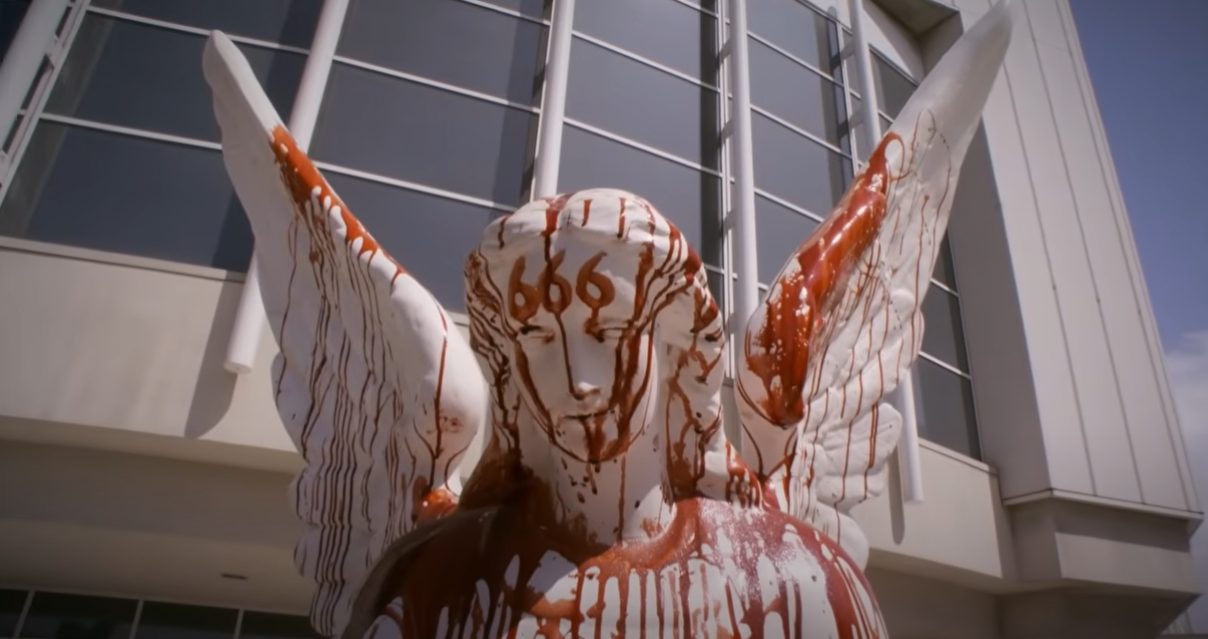
Throughout the season, Miami Metro comes closer to discovering the true identity of the Doomsday Killer, but Dexter remains ahead of the team in his hunt for Travis Marshall. The police are unaware that Dexter is conducting his own parallel investigation, using his insider knowledge to track down and confront Travis.
Harrison’s Role in Dexter’s Life
Dexter’s son, Harrison, continues to play a major role in Dexter’s internal conflicts. As Harrison grows older, Dexter becomes increasingly aware of the responsibility he has as a father. This season showcases Dexter’s fear of corrupting Harrison with his own darkness. At one point, Harrison has a medical emergency that causes Dexter to confront the possibility of losing his son. This experience heightens Dexter’s vulnerability and forces him to reconsider the nature of the legacy he is leaving for his son.
Throughout the season, Dexter grapples with whether he can ever be a good father, given his violent tendencies and double life.
Dexter vs. Travis:The Final Showdown
The climax of Season 6 occurs in a dramatic showdown between Dexter and Travis Marshall. After discovering that Travis plans to carry out a final, catastrophic act to complete his apocalyptic vision, Dexter races to stop him. Travis kidnaps Harrison, intending to use him as a sacrificial figure in his final “tableau,” mimicking the biblical story of Abraham and Isaac.
In a desperate and suspenseful finale, Dexter tracks down Travis and saves Harrison, killing Travis in a ritualistic manner reminiscent of Dexter’s usual methods. Travis’s death marks the culmination of Dexter’s personal battle with faith, justice, and his own moral compass. However, the season ends with a shocking twist that sets the stage for even more turmoil in the following season.
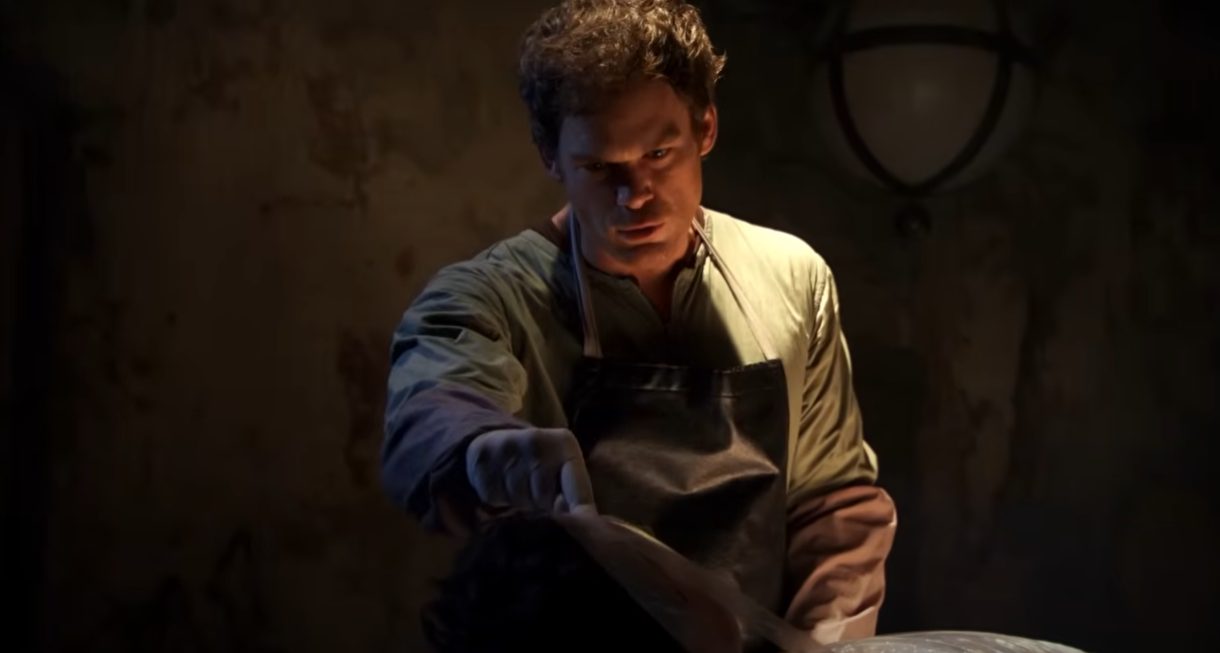
After Dexter kills Travis Marshall in the ritualistic setting of the church, Debra walks in just in time to witness the murder. The season ends with Debra’s horrified reaction as she catches Dexter in the act, finally discovering his dark secret.
This moment is a game-changer for the series, as it sets the stage for the explosive revelations and conflicts that define the next season. Debra’s discovery of Dexter’s true nature shatters the dynamic between the siblings and poses significant challenges for both characters moving forward.
Dexter Season 7 Recap: Secrets Revealed, Loyalties Tested
Season 7 of Dexter is one of the most intense and dramatic seasons of the series, as it tackles the long-awaited fallout from the Season 6 finale, where Debra Morgan discovers Dexter’s darkest secret. This season focuses on the moral and emotional consequences of Debra learning that her brother is a serial killer, as well as Dexter’s struggles to maintain his code while balancing new threats, a new love interest, and growing inner conflict.
Season 7 explores several key themes that deepen the complexity of Dexter:
- Morality and Consequences: Debra’s struggle to reconcile her love for Dexter with her sense of justice is a major focus of the season. The series continues to question whether Dexter’s actions can ever be justified and how far Debra is willing to go to protect her brother.
- Love and Connection: Dexter’s relationship with Hannah McKay challenges his belief that he can never be truly understood or loved. Hannah represents both a possible future for Dexter—someone who accepts him for who he is—and a dangerous temptation, as her own dark tendencies pose a risk to both of them.

- Loyalty and Betrayal: Isaak Sirko’s story adds a layer of tragedy to the theme of loyalty, as his pursuit of revenge is motivated by love and devotion. This stands in contrast to the betrayal Dexter faces from LaGuerta, who is determined to expose him
Debra’s Discovery
The season picks up immediately after the Season 6 cliffhanger, where Debra walks in on Dexter killing Travis Marshall in the church. This moment is the catalyst for much of the tension in Season 7. Debra is horrified and confused, demanding answers from Dexter. As she grapples with the reality that her brother is a vigilante serial killer, Dexter tries to explain his “Code of Harry,” claiming that he only kills people who deserve it—criminals who have evaded justice.
Debra’s moral dilemma is central to the season. She is torn between her duty as a police officer and her love for Dexter. At first, she insists Dexter stop killing, trying to monitor him and intervene. However, as the season progresses, Debra’s resolve begins to crack under the pressure of keeping Dexter’s secret. This moral and emotional conflict becomes one of the key arcs of the season.
The Introduction of Hannah McKay
One of the major new characters in Season 7 is Hannah McKay, played by Yvonne Strahovski. Hannah is a former accomplice to a notorious spree killer and becomes a central figure in Dexter’s life as the season progresses. Initially, Dexter investigates her for her involvement in past crimes, but he soon becomes romantically entangled with her.
Hannah is different from Dexter’s previous love interests—she accepts his dark side and understands his compulsion to kill. This acceptance makes her both a fascinating and dangerous figure for Dexter, as she represents someone who could truly be a partner to him in both life and death. Their relationship deepens as the season progresses, but Hannah’s complicated history and dangerous tendencies also create tension and conflict.
Isaak Sirko and the Koshka Brotherhood
Another major storyline in Season 7 revolves around Isaak Sirko, a high-ranking member of the Ukrainian mafia known as the Koshka Brotherhood. Isaak seeks revenge for the murder of Viktor Baskov, a fellow mobster whom Dexter killed early in the season.
Isaak becomes one of Dexter’s most dangerous and relentless adversaries. Unlike many of Dexter’s previous foes, Isaak is a sophisticated and intelligent man, driven by personal loyalty and revenge rather than psychopathy. As Dexter tries to evade Isaak’s attempts to kill him, the two men develop a complicated relationship, almost bordering on mutual respect. Isaak’s quest for revenge gives way to a more philosophical exploration of loyalty, love, and survival, making him one of the more intriguing villains of the series.
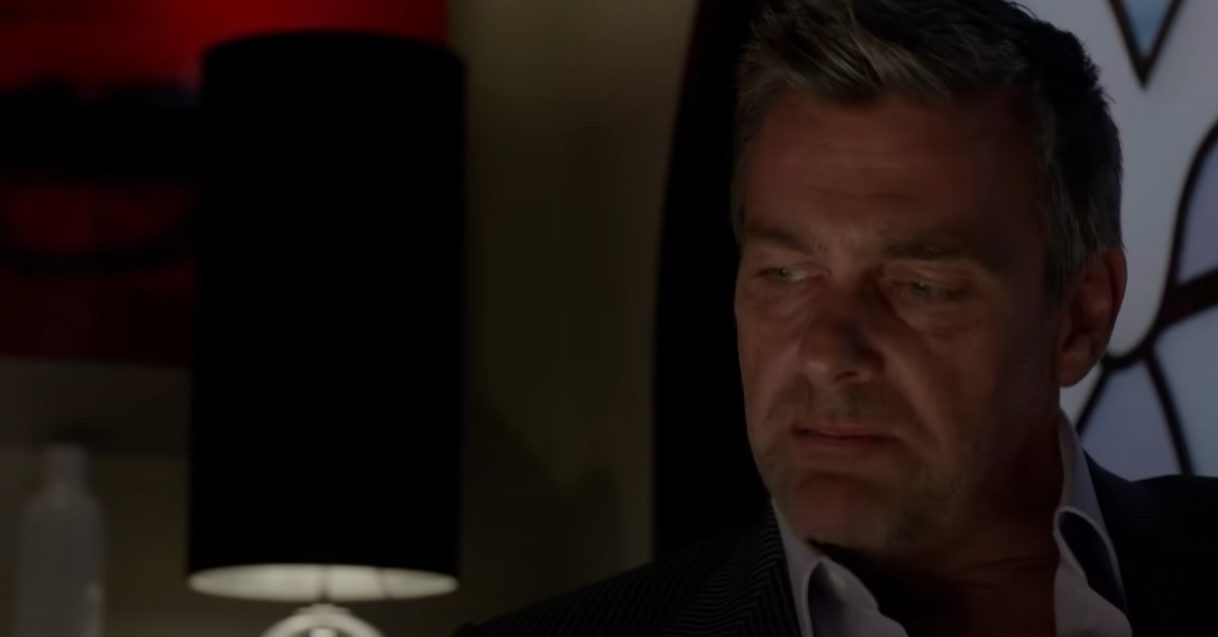
Isaak’s pursuit of Dexter culminates in an intense series of confrontations, but their conflict takes an unexpected turn when Isaak reveals his deep feelings for Viktor, adding a layer of tragic depth to his motivations. Isaak ultimately meets his end in a gunfight, with Dexter by his side in his final moments.
LaGuerta’s Investigation into Dexter
Throughout the season, Captain Maria LaGuerta reopens the Bay Harbor Butcher case, suspecting that Dexter may have been involved in the killings attributed to James Doakes. Early in the season, she finds a blood slide at the scene of Travis Marshall’s death, a calling card of the Bay Harbor Butcher. This discovery leads her to investigate Dexter more closely, putting him in jeopardy of being exposed.
LaGuerta’s investigation ramps up as she begins to connect the dots, eventually pulling Debra into the web of suspicion. In her quest to clear Doakes’ name, LaGuerta goes to great lengths to gather evidence against Dexter, including finding his old boat and even attempting to set him up. Her pursuit of the truth becomes a major threat to Dexter’s survival.
Debra’s Descent and the Season’s Climax
As LaGuerta gets closer to uncovering the truth, Debra’s emotional state continues to deteriorate. The weight of protecting Dexter’s secret begins to take its toll, and Debra’s psychological breakdown is one of the season’s central arcs. At one point, Debra confesses to Dexter that she had been in love with him—a complicated and unsettling revelation that further strains their relationship.
The season reaches its emotional and dramatic climax in the final episode when LaGuerta arrests Dexter and attempts to publicly expose him as the Bay Harbor Butcher. In a desperate attempt to save Dexter, Debra is forced to make an impossible choice—kill LaGuerta or let Dexter be arrested and his secret revealed. In a heart-wrenching and shocking moment, Debra shoots LaGuerta, killing her and sealing her own descent into moral darkness.
This final act has far-reaching consequences, as it shatters Debra’s sense of self and drags her into Dexter’s world of murder and secrecy. The season ends with Debra sobbing over LaGuerta’s body, leaving viewers to wonder how this will affect her relationship with Dexter going forward.
Dexter Season 8 Recap: The Final Chapter
Season 8 of Dexter marks the conclusion of the series, bringing Dexter Morgan’s journey to an emotional and controversial end. The season explores Dexter’s desire to leave behind his dark passenger while confronting his past, his need for connection, and the weight of his actions over the years. It introduces new characters, such as Dr. Evelyn Vogel, a key figure from Dexter’s past, and brings back familiar faces to push the story toward its dramatic conclusion.
Dr. Evelyn Vogel
The final season introduces Dr. Evelyn Vogel, a neuropsychiatrist specializing in psychopathy, who claims to have played a pivotal role in Dexter’s upbringing. Vogel reveals that she worked with Dexter’s adoptive father, Harry Morgan, to create the “Code of Harry,” the set of rules Dexter has lived by to channel his homicidal urges toward criminals.

Vogel’s arrival shocks Dexter, as she reveals she knows about his secret life and views him as her greatest “creation.” She sees him as a success in turning a born psychopath into a functional member of society. As the season progresses, Vogel becomes a maternal figure to Dexter, guiding him as he faces new threats and decisions about his future. However, Vogel’s intentions and moral compass come into question, and Dexter struggles with the revelation that he has been shaped by her influence.
The Brain Surgeon: Season 8’s Main Villain
The central villain of the season is the Brain Surgeon, a serial killer who removes specific parts of his victims’ brains as a calling card. It is revealed that the Brain Surgeon is actually Oliver Saxon, Vogel’s estranged son, who suffers from psychopathic tendencies that she failed to cure.
Saxon represents a dark reflection of Dexter, someone who never adhered to a code or moral guidelines. Dexter becomes obsessed with finding and stopping Saxon, seeing him as a final test of his ability to rid the world of dangerous killers. The conflict between Dexter and Saxon serves as the primary driver of the season’s action and leads to the final showdown between the two.
Dexter and Hannah McKay
Hannah McKay returns in Season 8, reigniting her complex relationship with Dexter. Despite their shared dark sides, Hannah and Dexter’s love for each other becomes a central focus of the season. However, their relationship is complicated by the fact that Hannah is a wanted fugitive, and both Dexter and Hannah must evade law enforcement while trying to plan a future together.
As Dexter becomes more serious about leaving Miami and his killing days behind, he starts to dream of a life with Hannah and his son, Harrison, away from the chaos. He plans to leave the country with Hannah and Harrison, escaping his life as a killer and starting fresh. This storyline underscores Dexter’s desire for redemption and normalcy, and his longing to break free from his dark passenger once and for all.
Debra Morgan’s Downfall

One of the most heartbreaking storylines in Season 8 is Debra Morgan’s downfall. After killing Captain Maria LaGuerta at the end of Season 7 to protect Dexter, Debra is consumed by guilt and regret. She quits her job at Miami Metro Homicide and spirals into a life of self-destruction, taking up work as a private investigator and battling substance abuse.
Debra’s relationship with Dexter becomes strained as she struggles to reconcile her love for her brother with the knowledge of what he is. Throughout the season, Debra oscillates between anger at Dexter and a deep desire to find peace. Her internal conflict reaches a breaking point when she is drawn back into Dexter’s world as the hunt for the Brain Surgeon intensifies.
The murdering of Dr Vogel
Dr. Vogel’s role in Dexter’s life takes a tragic turn when she is murdered by her own son, Oliver Saxon. Vogel’s death devastates Dexter and further complicates his views on his own existence. Having seen Vogel as a guiding figure, her murder by Saxon forces Dexter to confront the idea that he may never truly escape the violent tendencies that have shaped his life.
This event pushes Dexter toward a final confrontation with Saxon, with the added weight of knowing that Vogel, who had a hand in shaping his moral code, died at the hands of her own psychopathic son.
The Final Showdown with Oliver Saxon
In the season’s final episodes, Dexter tracks down Saxon and confronts him in the Miami Metro Homicide building. Despite having the opportunity to kill Saxon, Dexter chooses not to in that moment, signaling that he may be moving away from his old habits. However, in the very next scene, Dexter kills Saxon in cold blood while under police custody, an act that Debra’s colleague, Joey Quinn, brushes off as self-defense.
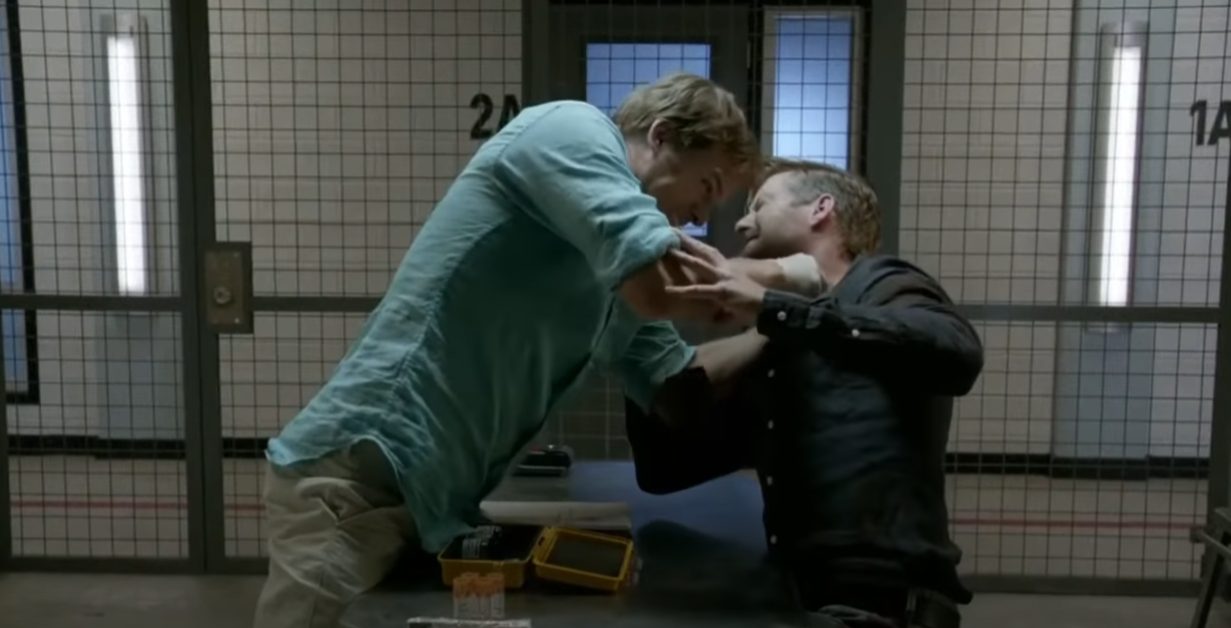
This final kill highlights Dexter’s ongoing struggle between justice and murder. While he spares Saxon at first, the ease with which he ultimately ends his life suggests that Dexter may never be able to completely change.
Debra Morgan’s Death
One of the most shocking and emotional moments of Season 8 is the death of Debra Morgan. During the hunt for Saxon, Debra is shot and suffers severe injuries. Although she initially survives the surgery, complications arise, and she falls into a coma. This event devastates Dexter, who realizes that his actions have directly led to the downfall and death of his beloved sister.
In a heartbreaking decision, Dexter chooses to take Debra off life support and gives her a “burial at sea,” mirroring his ritual for disposing of his victims. Debra’s death serves as a tragic consequence of Dexter’s double life and represents the final severing of his ties to his family and humanity.
Dexter’s Fake Death
The season—and the series—ends with Dexter making a drastic decision. After Debra’s death, Dexter feels that everyone he loves is doomed because of him. Rather than fleeing to Argentina with Hannah and Harrison as planned, Dexter decides to fake his own death. He drives his boat, the Slice of Life, into a hurricane, making it appear as though he died at sea.
However, in the final moments of the series, it is revealed that Dexter has survived and is now living a solitary life as a lumberjack in Oregon. He has abandoned his identity, his family, and his dark passenger, choosing to live in isolation. The final shot of the series shows Dexter sitting alone in a cabin, suggesting that while he may have escaped the life of a killer, he is forever trapped in his own darkness.




